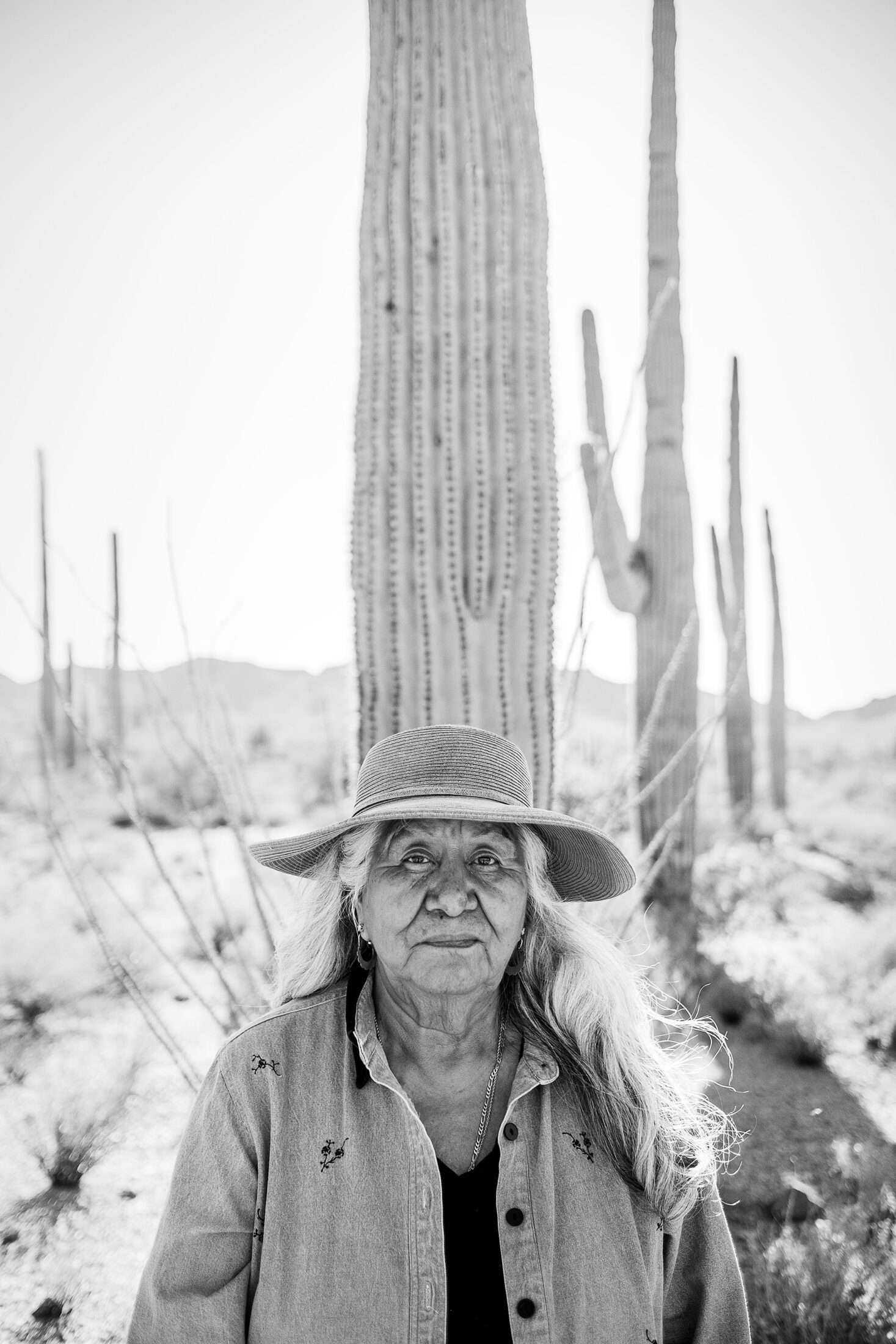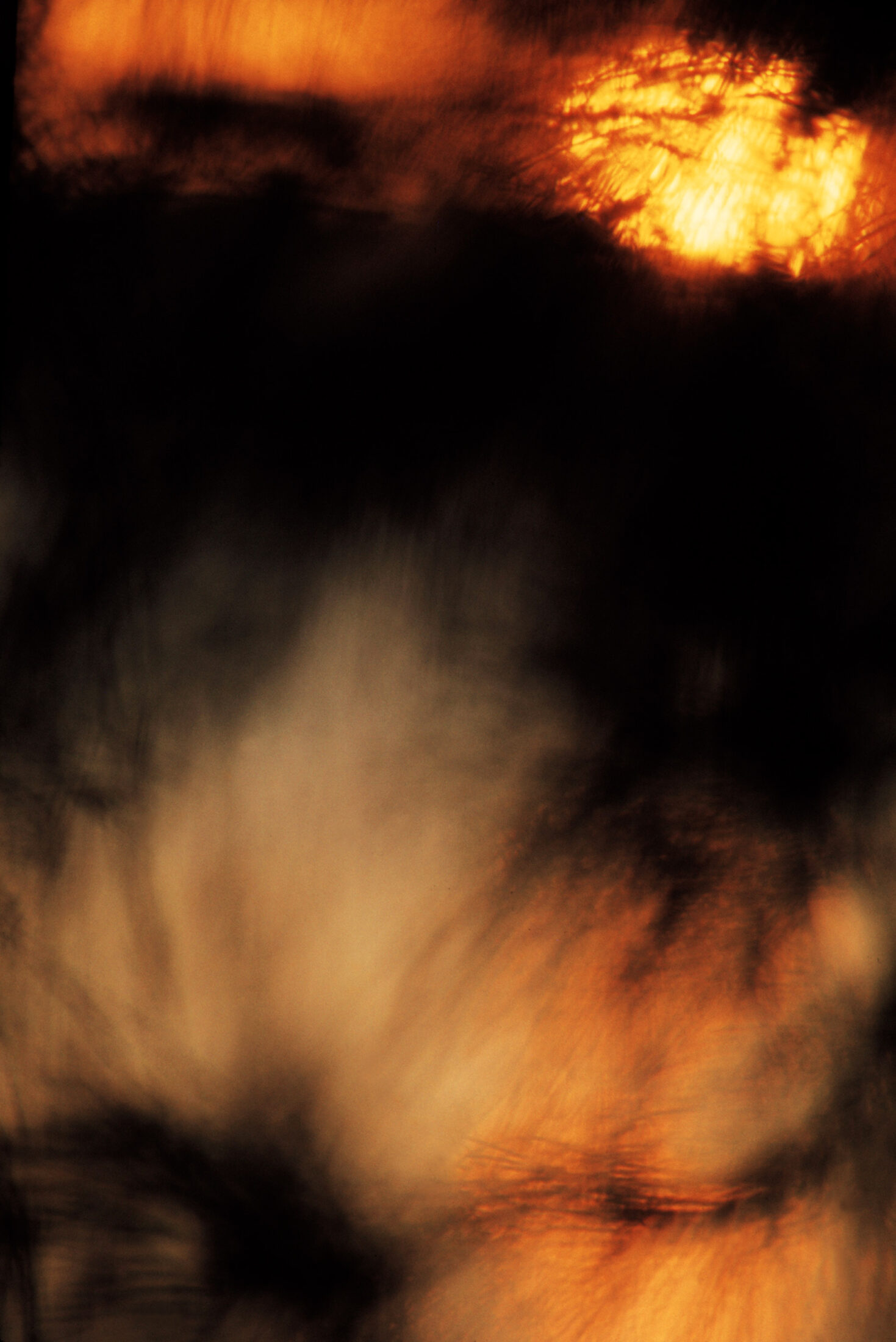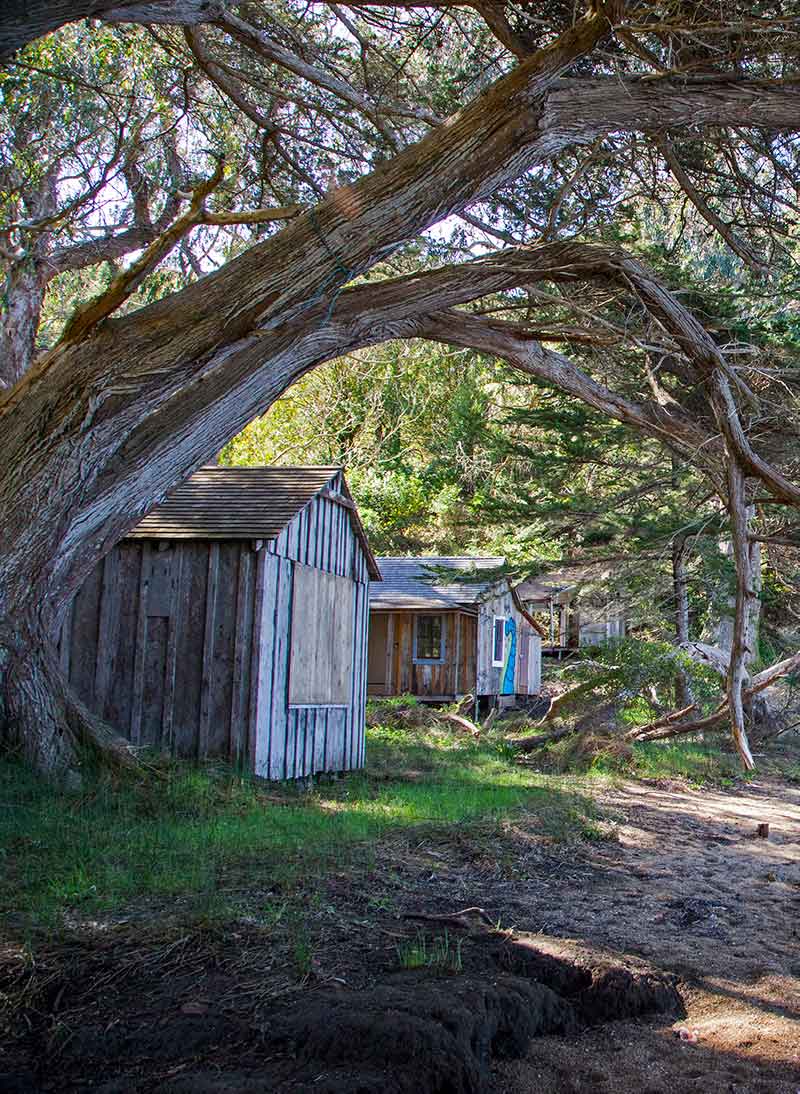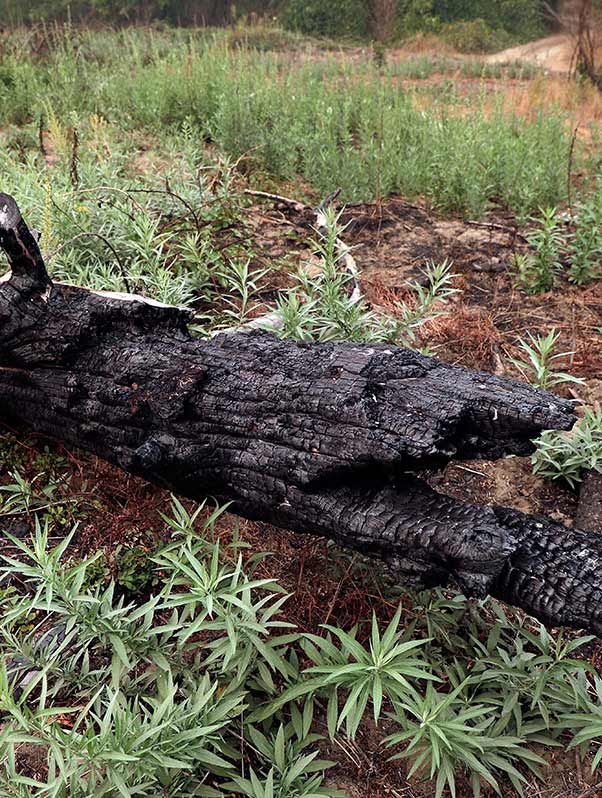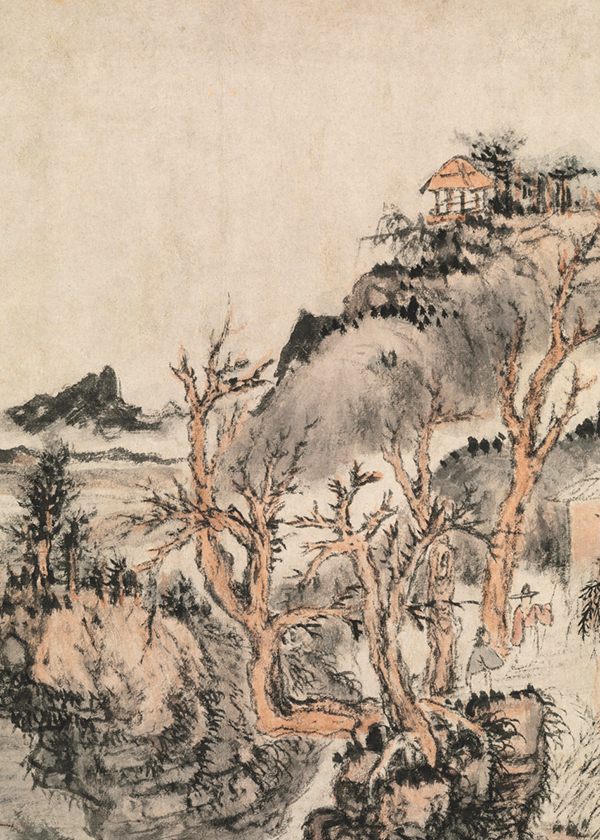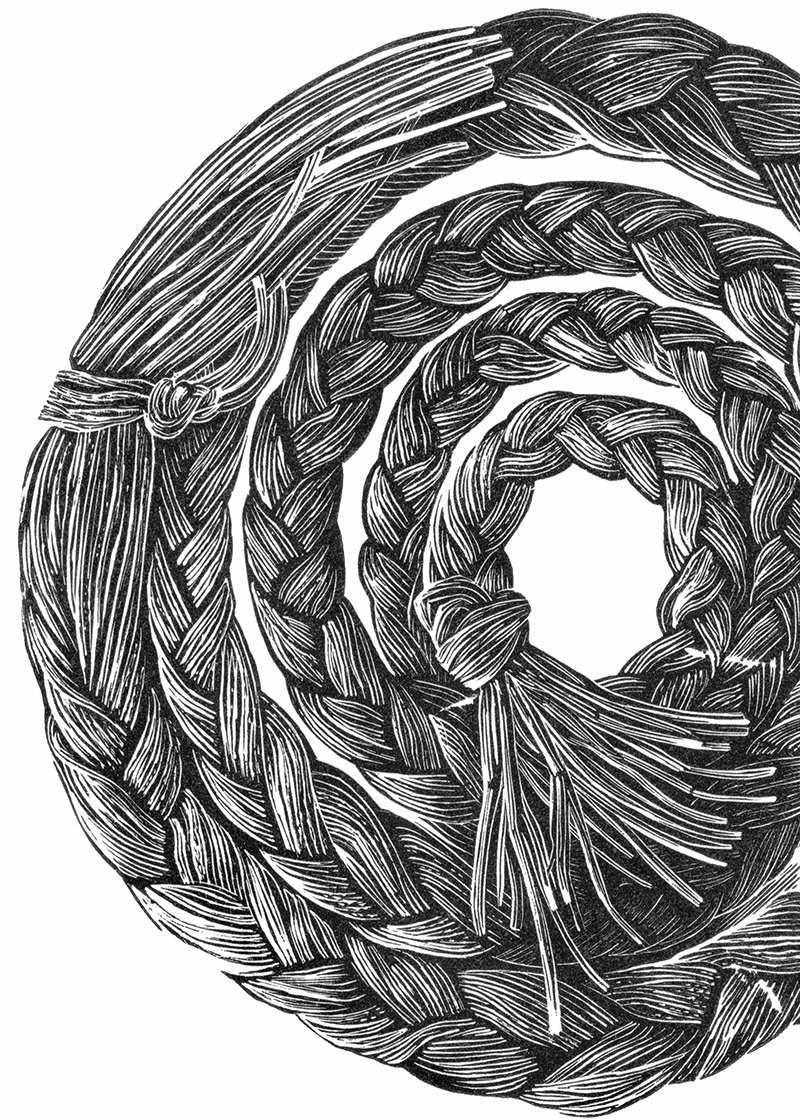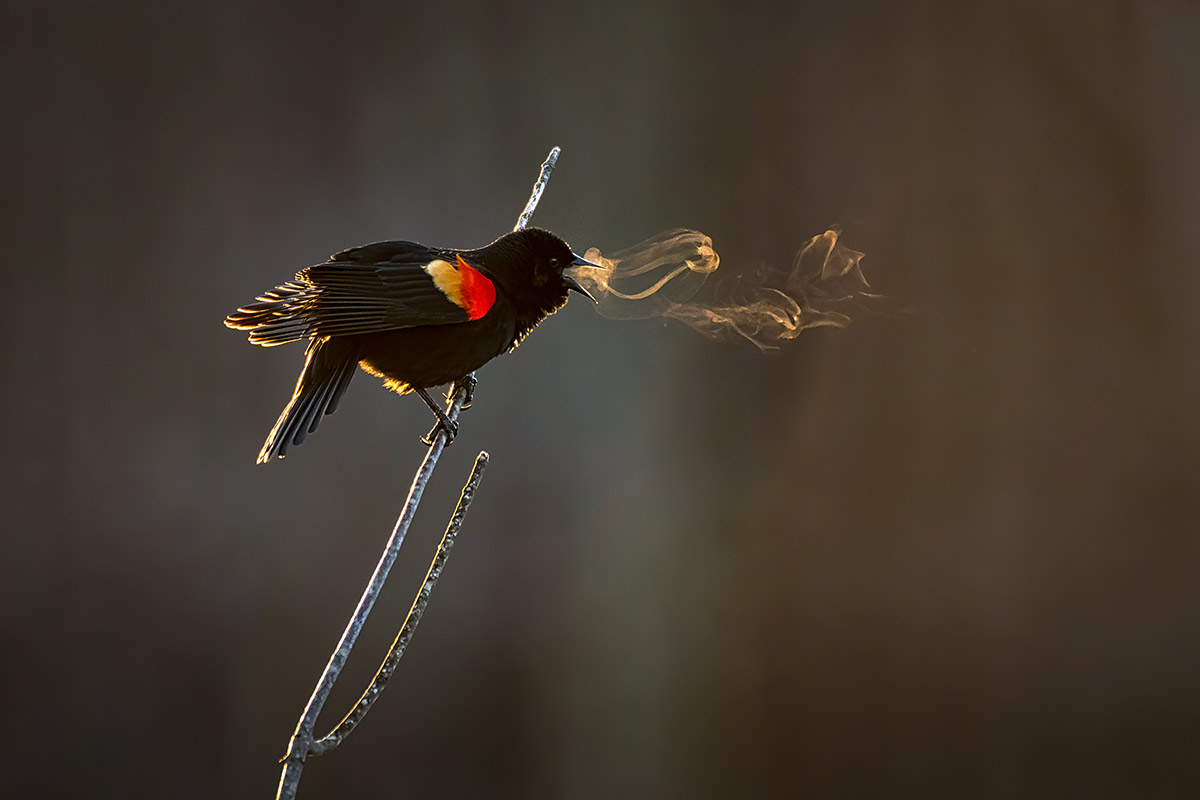
Photo by Kathrin Swoboda
Listen: Four Love Songs
by Kathleen Dean Moore
Kathleen Dean Moore, PhD, is a writer, moral philosopher, and environmentalist. Her many books and awards include Holdfast: A Home in the Natural World, recipient of the Sigurd Olson Nature Writing Award; The Pine Island Paradox, winner of the Oregon Book Award; Great Tide Rising: Towards Clarity and Moral Courage in a Time of Planetary Change; the novel Piano Tide, winner of the Willa Cather Award for Contemporary Fiction; and, most recently, Earth’s Wild Music: Celebrating and Defending the Songs of the Natural World. She lives with her husband in Corvallis, Oregon.
Kathrin Swoboda is an award-winning nature photographer based in northern Virginia. She is a member of the Vienna Photographic Society, and her recognitions include the Grand Prize in the 2019 Audubon Photography Awards.
Kathleen Dean Moore considers the looming loss of wild music heard in the songs of birds—and the vital stories woven into them that are calling for us to listen.
Regent Honeyeater
The regent honeyeater in Australia, a black and yellow wattlebird, is critically endangered. In fact, there are so few honeyeaters singing in the fragments of forested woodland slopes that it is unlikely a young one will ever hear the song of another regent honeyeater after it leaves the nest. As a result, the young cannot learn to sing their species’ songs. A young male might mimic other birds in the forest, and this is a disaster, because the lovely honeyeater females can only respond to the traditional song. So males sing their broken, useless songs, while females, laden with unripe eggs, wait for the song they will never hear. And the species plummets toward oblivion. The broken songs are, ecologists say, “the sound of extinction.”
My sisters and I learned songs from our mother. She sang us to sleep, sitting on the edge of the bed on long Cleveland nights. She sang campfire songs about canoe trails and the sweet smell of bracken ferns and pine, or Scottish folksongs—the bonnie bloomin’ heather—that her own mother sang to her back in Thornaby-on-Tees. Sometimes she cried when she sang the songs, and we knew even then that these were love songs to the vanished places she still longed for. All things shall perish from under the sky, she sang. Music alone shall live. This weighed on us. We weren’t sure: If she perished, could we sing without her connection to the Earth? Could the wind sing without aspen leaves?
Western Meadowlark
The tallgrass prairie in what is now North Dakota rang with the songs of meadowlarks. Sleep lu lidi lidi juvi, they slurped, perched on snags above the green waves of grass. The nestlings learned these songs from their singing parents, and this is how it was for millennia, lyrical song after song. Then, what was once called the prairie became known as the Bakken, one of the greatest deposits of oil and natural gas in the country. The oil fields now ring with metal against metal, drill bits against slab rock, truck tires on asphalt, and methane flares like jet engines against the hard sky. The noise is so overpowering that the nestlings can no longer hear their parents sing. And so meadowlarks learn songs that are broken: approximations, only, of what the meadowlark song could be. Acoustic ecologists compare the new songs to the language of the military—sharp, pragmatic commands intended to be heard over the thud of artillery and bombs.
There was noise aplenty in my husband’s house while he was growing up—four siblings, a German shepherd, mowers and motorcycles, bouncing basketballs. But no one sang to him. His parents might have cranked up the volume on the Magnavox while they mixed the Manhattans, but nobody sang. So he is no more able to sing a love song than an oil-field meadowlark. What will become of us, as the racket of industrial America drowns out Earth’s songs?
Brown-Headed Cowbird
The cowbird lays her eggs in the nests of other birds—red-winged blackbirds, warblers, or even hummingbirds. Unwitting, the other parents try to feed the insatiable, begging babies, even as the oversized cowbird chicks crowd the other nestlings over the edge and claim their insects and worms. The cowbird’s strategy—brood parasitism—is economical, offloading the costs of raising their chicks onto another nesting pair. It carries a risk, though, because just at the time when cowbird chicks should be picking up their parents’ gurglewhisp, the nestlings hear instead the okalee, yank-yank, what cheer, sweet-sweet, keeer of the songs of other species. How will they learn the liquid song that will attract a cowbird mate? It turns out that adult cowbirds use a “code word” to get their young to listen closely to them alone. It’s a chattering sound that says, listen now to what is to come: this is your song. Primed by this code, the young cowbirds mimic the sound that comes next.
My father was a park naturalist whose job was to help people fall in love with a patch of beech-maple forest between the final approach to the Cleveland Hopkins Airport and State Route 237. Listen! he would say, as he led a parade of people down the river trail. Tufted titmouse, he would say. Spring peepers. He paused, bowing his head, to let a Boeing 707 screech over or a Harley Davidson rumble by. Listen! was his code word. Listen now to what is to come: this is your song. This is the music that will connect you to the Earth family you belong to—birdsong and rain patting autumn leaves, wind turning leaves inside out, water slipping over stones. This is important, he said. If we can hear only the voices we create, might we imagine these are the only voices that have a vital story to tell?
Red-Winged Blackbird
The red-winged blackbird has, to my ears, the most beautiful song of all the birds. Chack, he says. Chack, and the little feathers on his throat fan like a flower. Then he lifts his beak and out pours a slippery, shining syrup of a song. If joyful exuberance could speak for itself, this is what it would say. The song is a hymn of rejoicing: The morning is beautiful and full of bugs. The light warms my back. Soon enough, there will be whispering babies and restless wings, and then clouds of blackbirds over the cattails. What young female blackbird could resist that song, when I, a grown woman, have fallen head over heels in love? Amen, I whisper to blackbirds. It is so, so may it be.
This spring, my husband and I stood at the edge of a marshy deflation plain by the sea and listened to blackbirds. Their songs shimmered like the morning light that poured on the marsh. But not just any marsh. This is the marsh that had been staked out as the site of a $10 billion liquid natural gas export terminal and pipeline, the largest construction project in the state’s history. If things had gone according to corporate plan, the entire marsh would have been bulldozed by now and every single song buried in the spoils. But the marsh was saved. People who loved the songs of the blackbirds and the rustle treep of the marsh saved them. Meanwhile, Australians are giving singing lessons to the honeyeaters, playing their ancestral songs to young ones on the nest. Voters have persuaded their leaders to allow no new fracking leases on the meadowlarks’ singing grounds on public lands. Protesters are turning back bulldozers that threaten to cut pipelines through redwing wetlands on Native lands. I don’t want to say that listening can save Earth’s wild music, but without listening, how can it be saved?
When we listen, we open ourselves to new, joyous relationships with species other than our own. There are stories in the music we hear, stories about faithful bonds, about love and loneliness, about fear and the urgency of ongoing life. When we listen, we set aside our own stories and recognize and honor the stories told by others, no matter how unfamiliar they may be. This is the beginning of empathy. This is a necessary condition for caring. And caring is what will save the songs.


